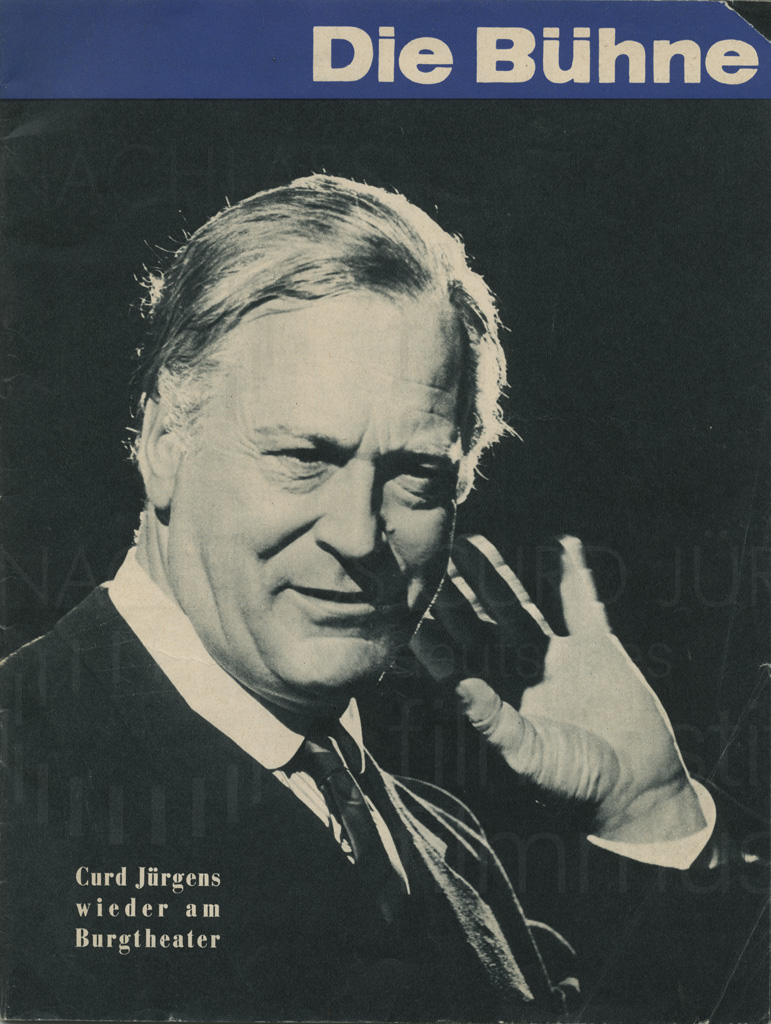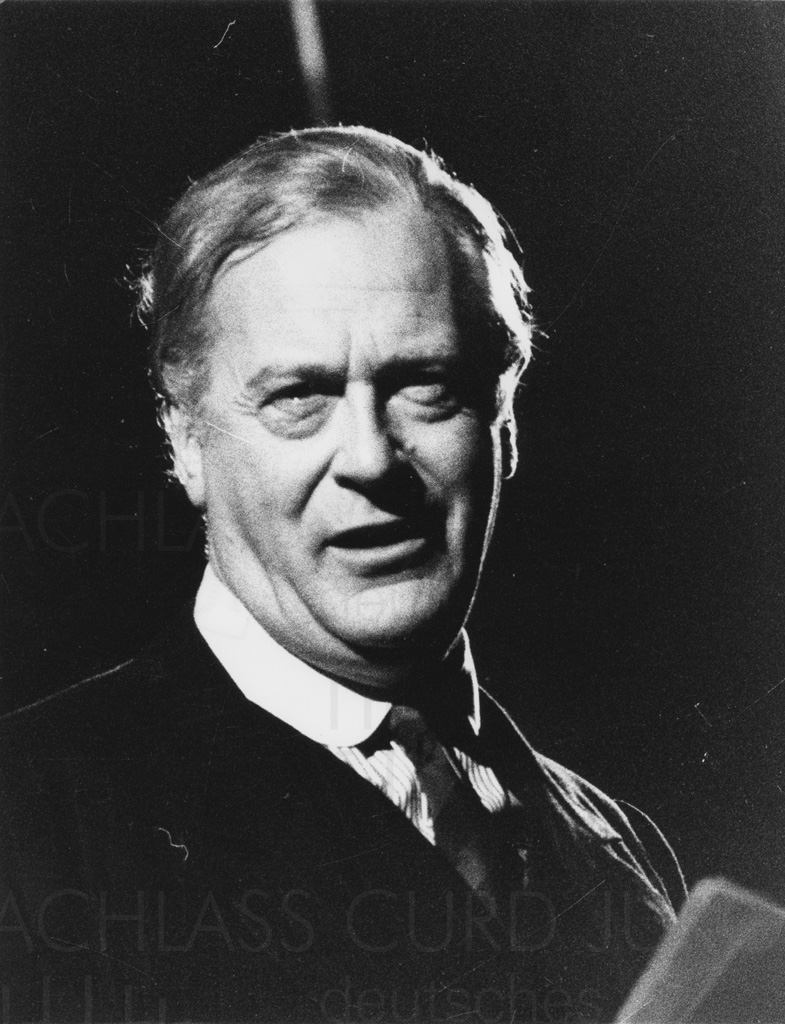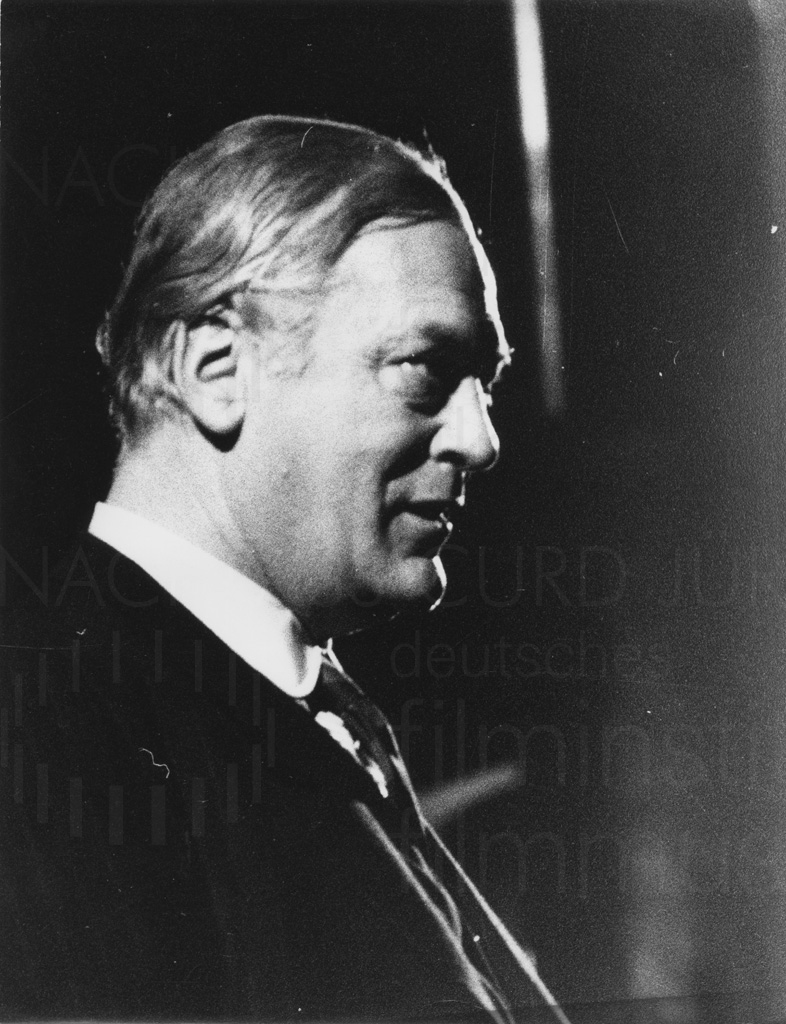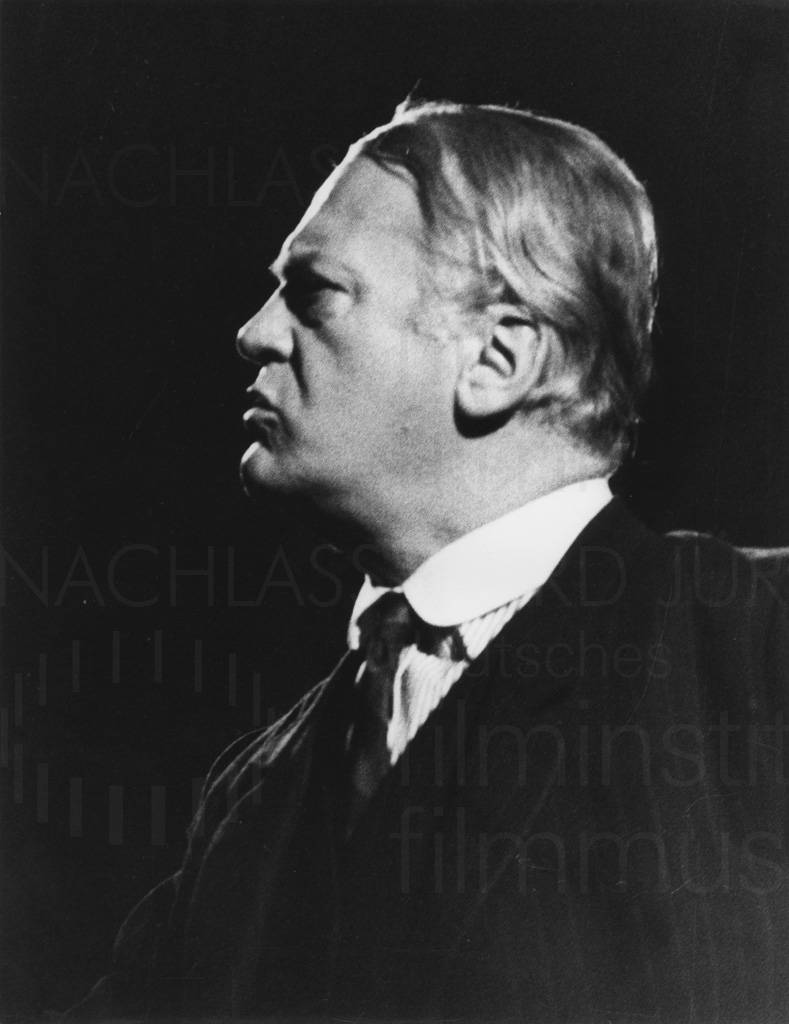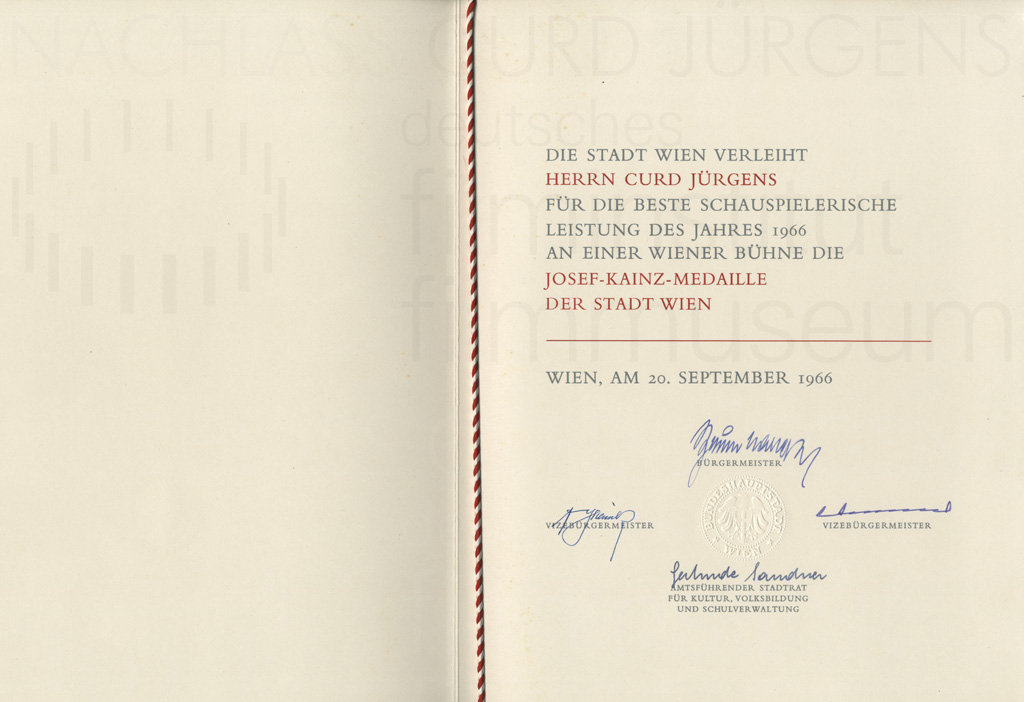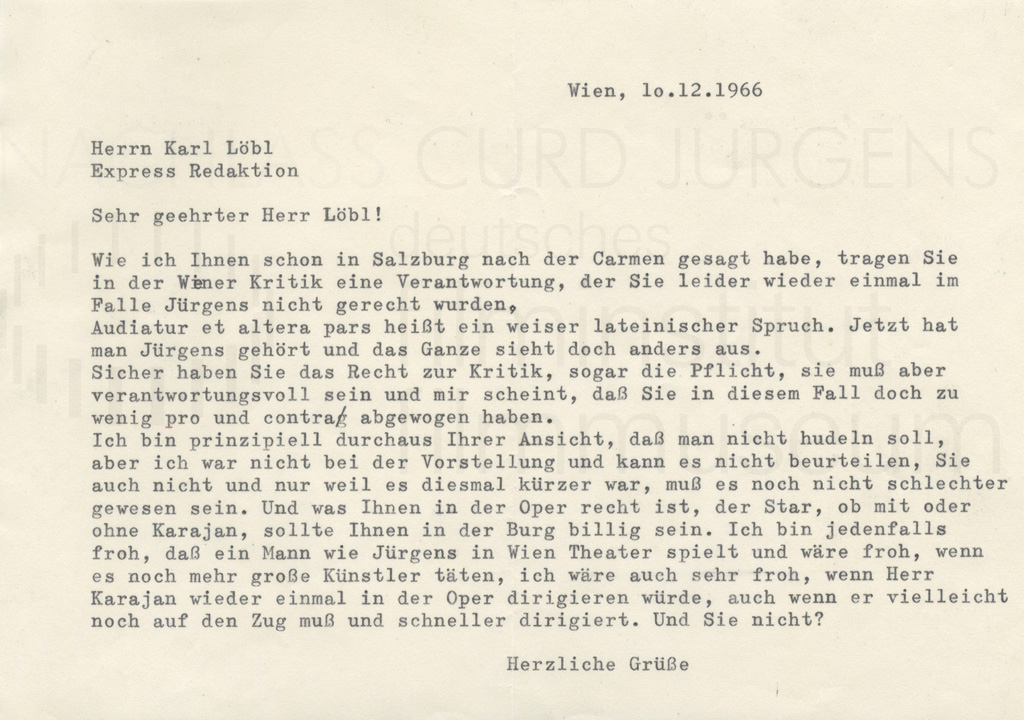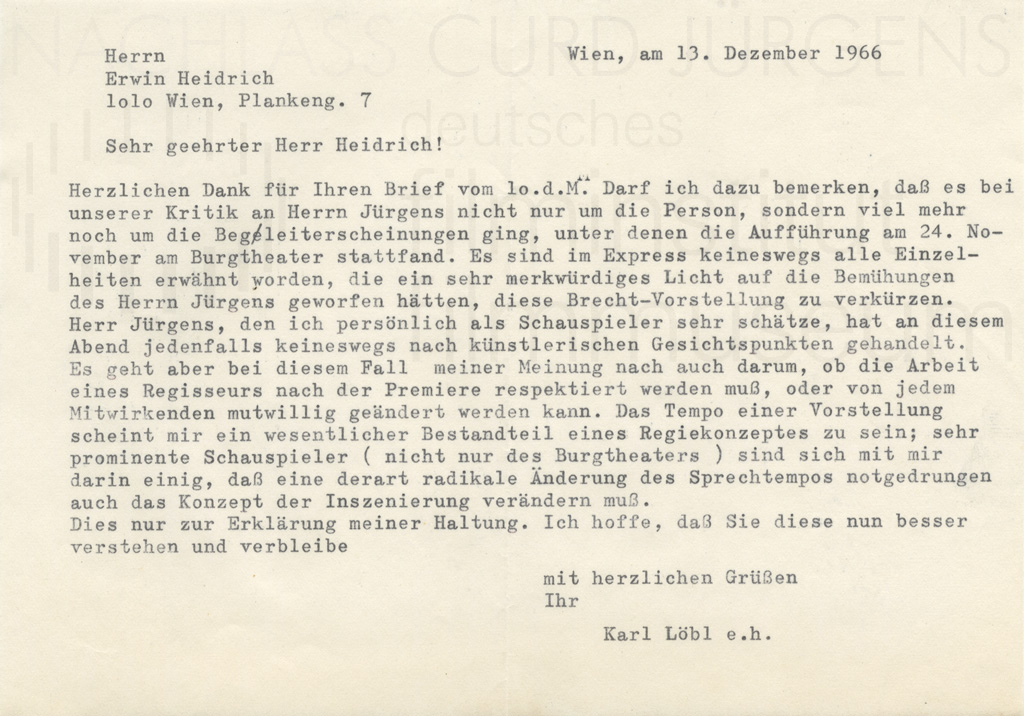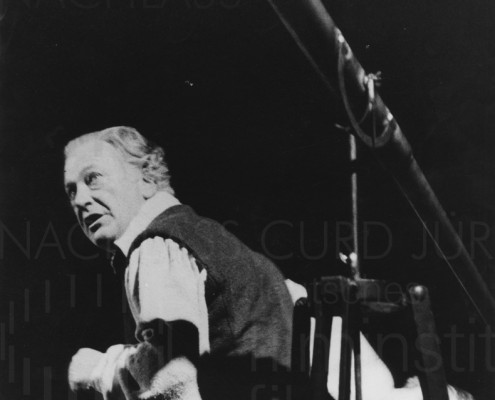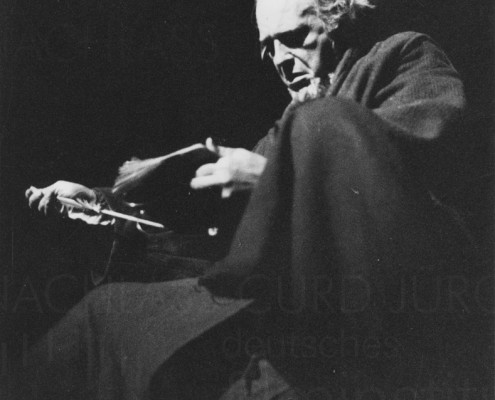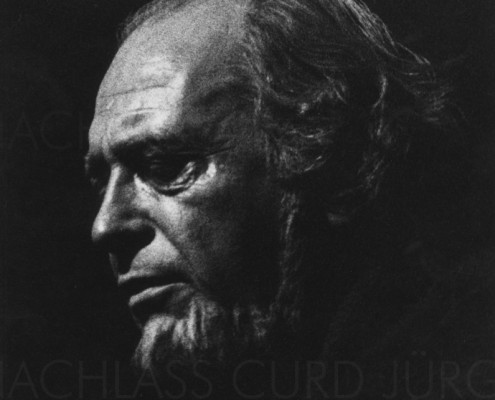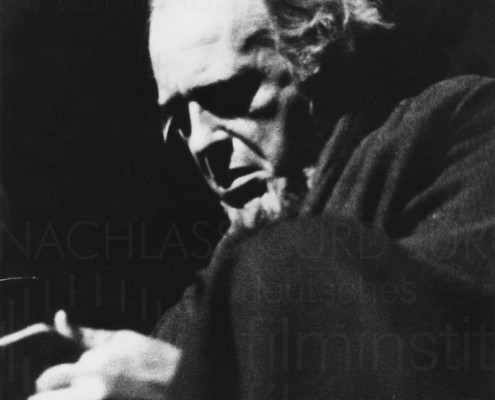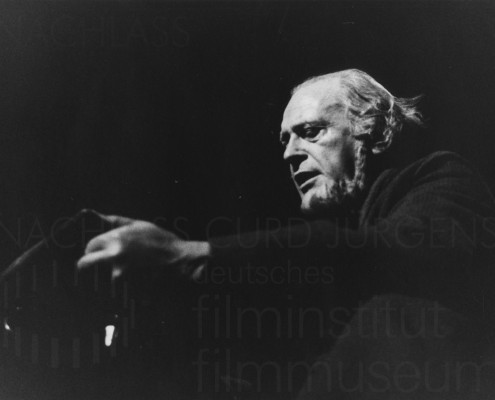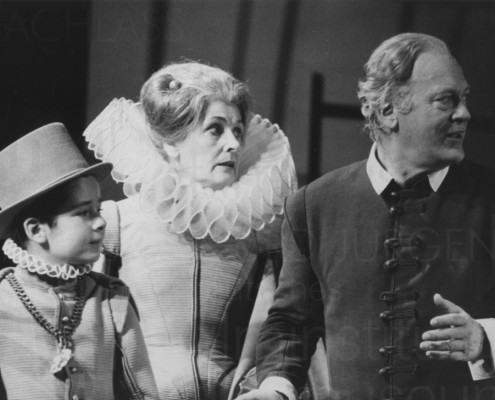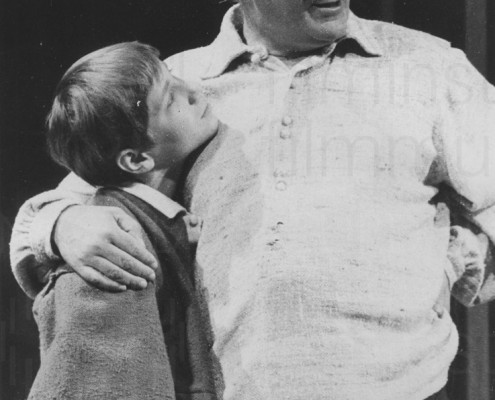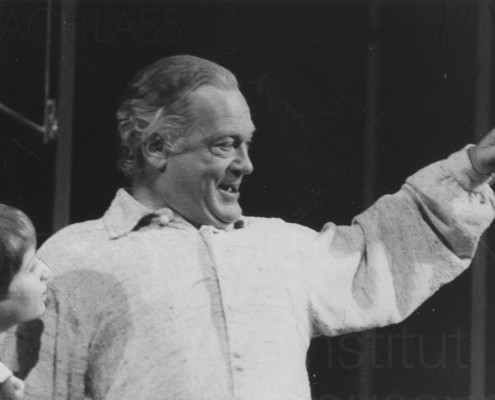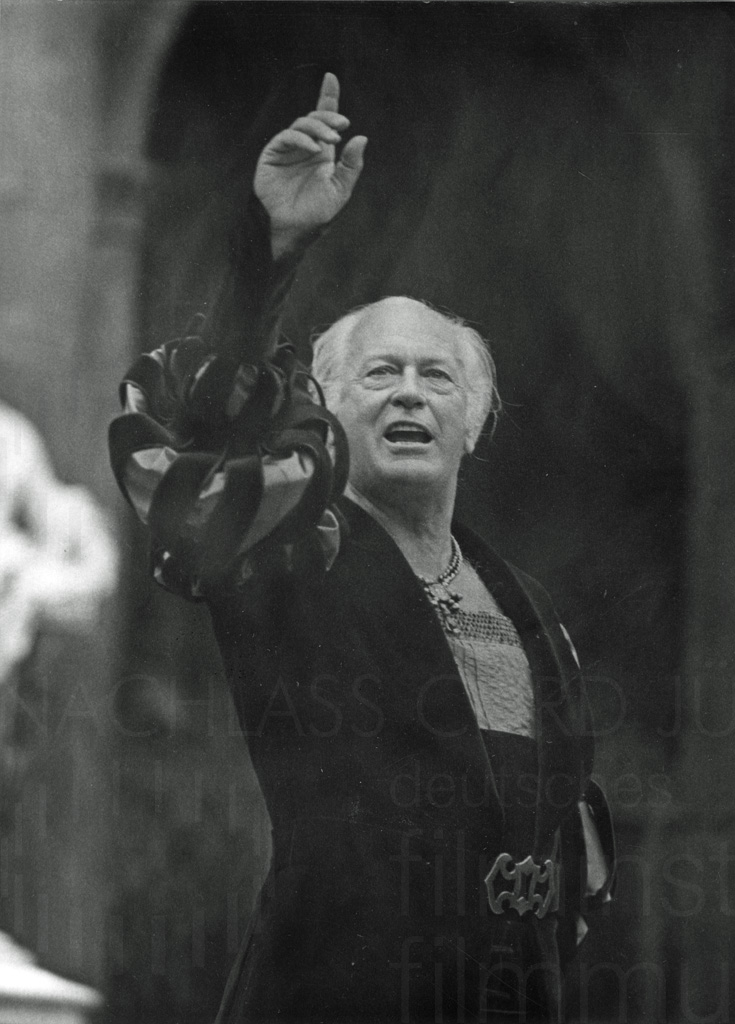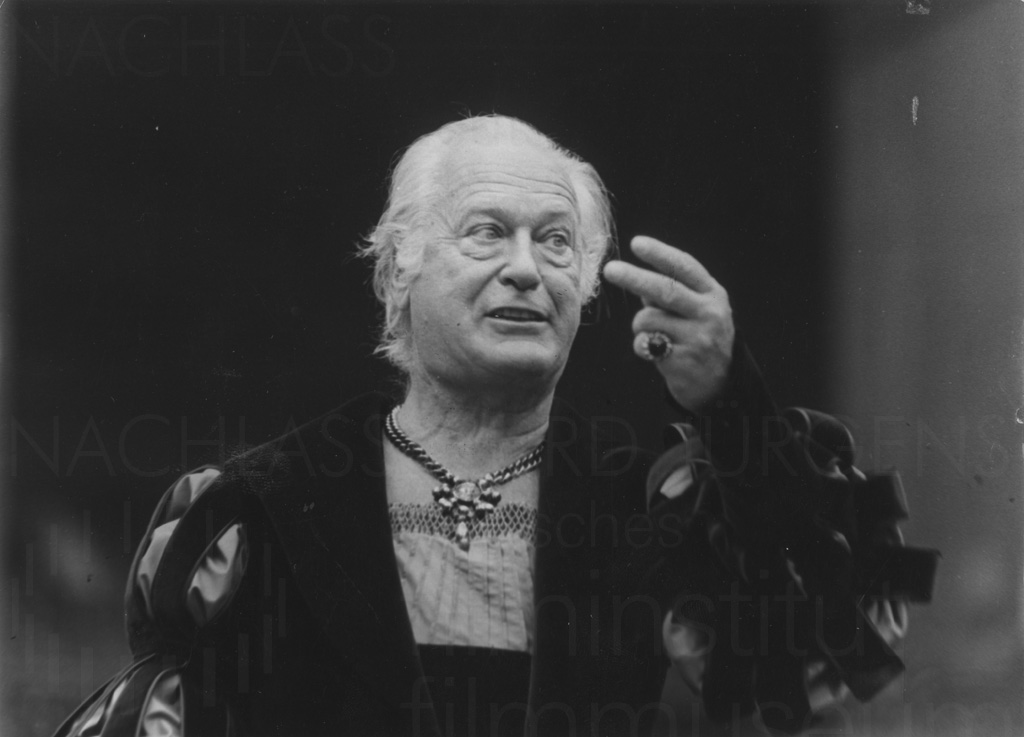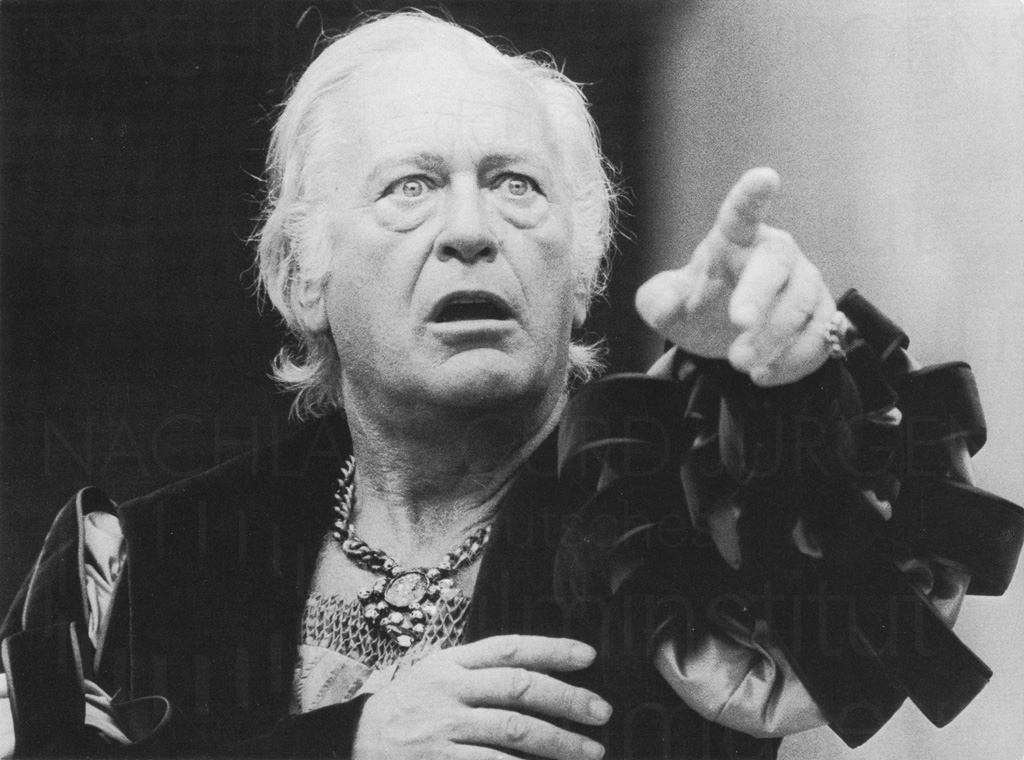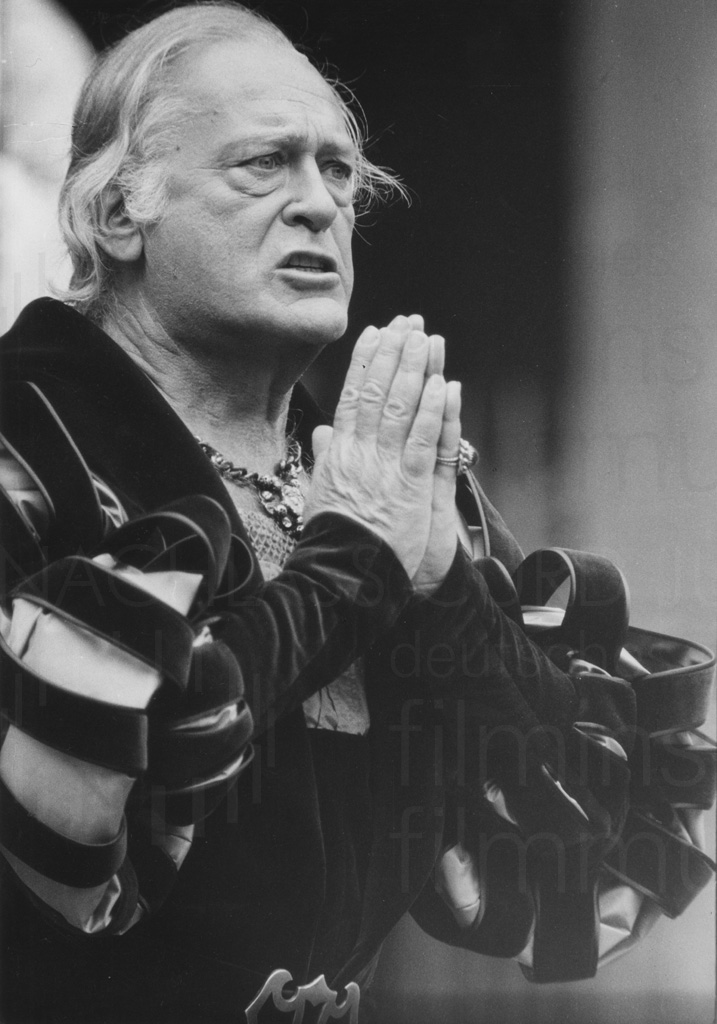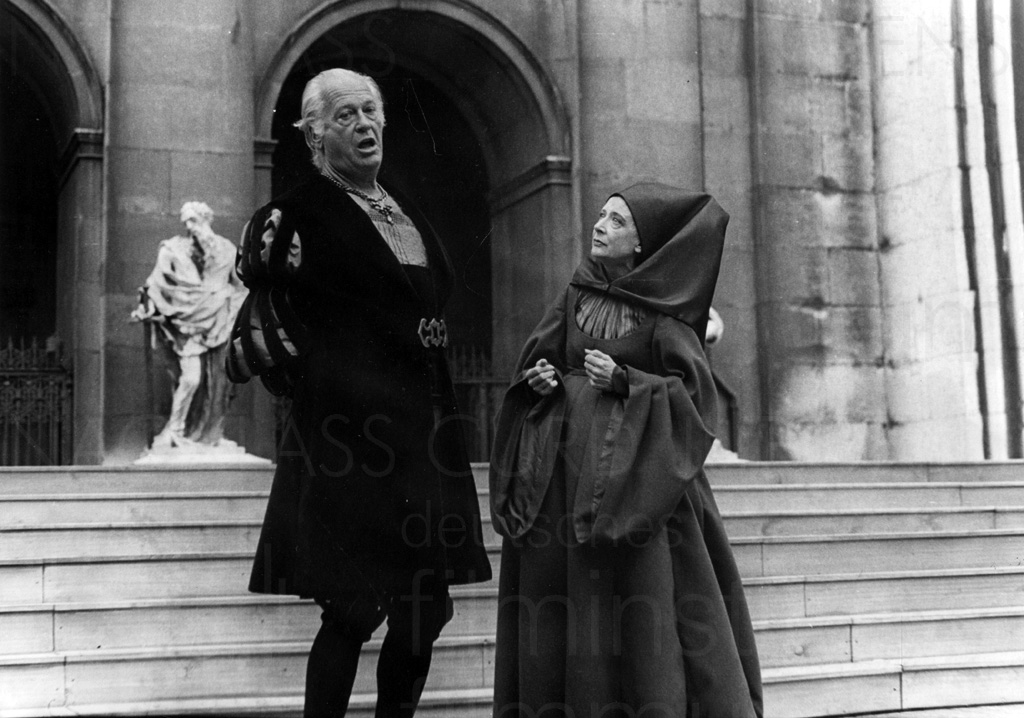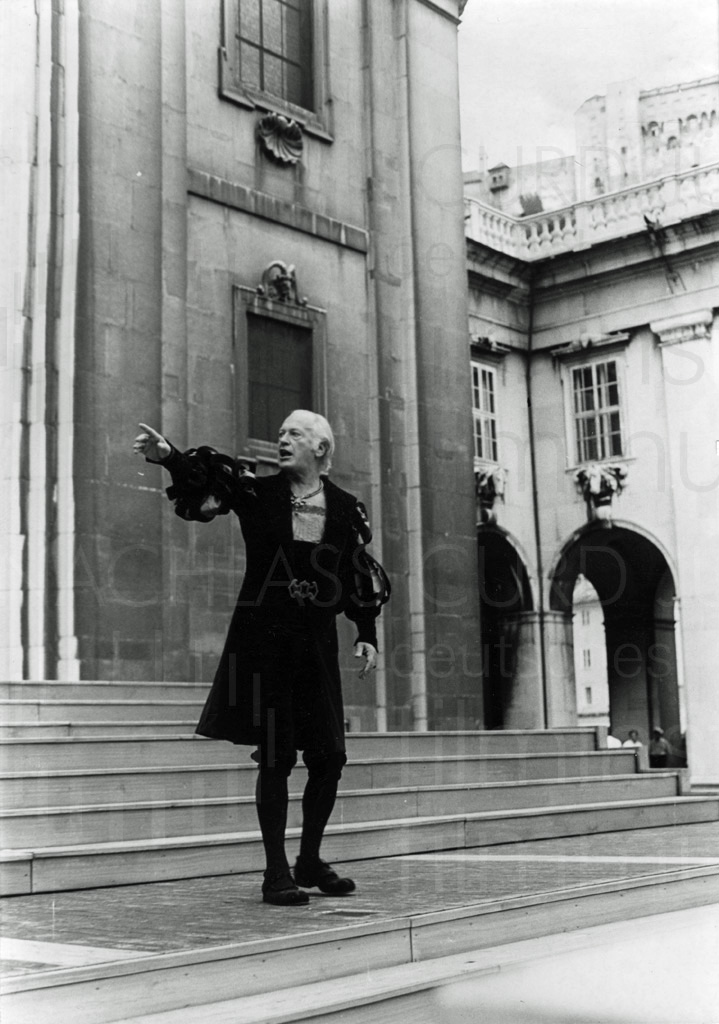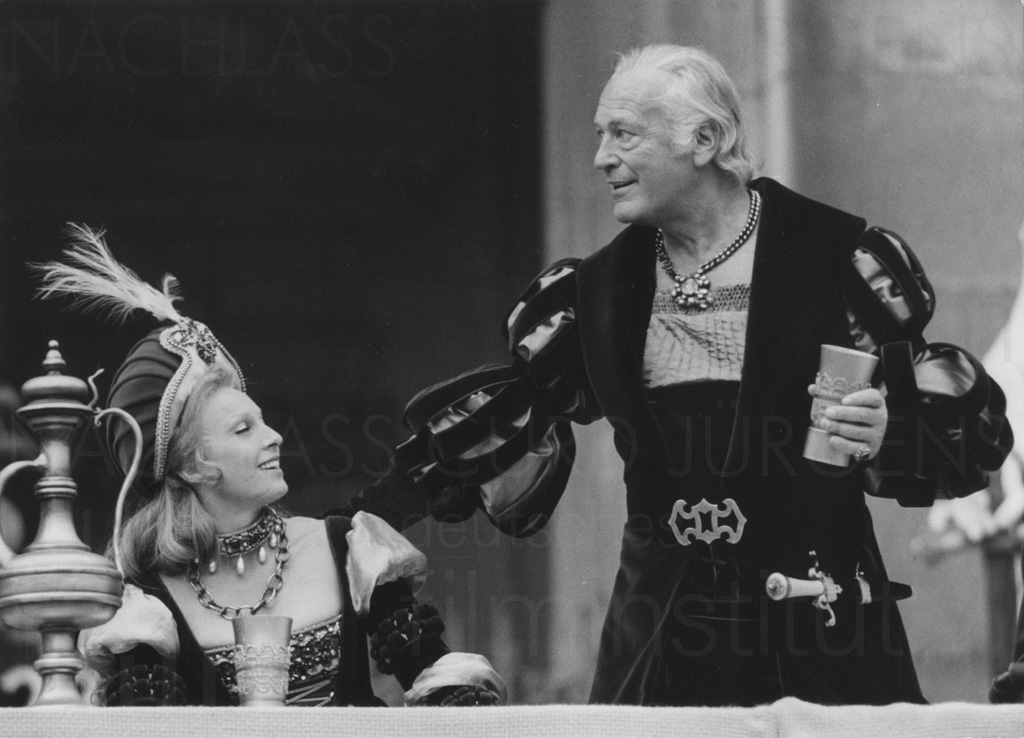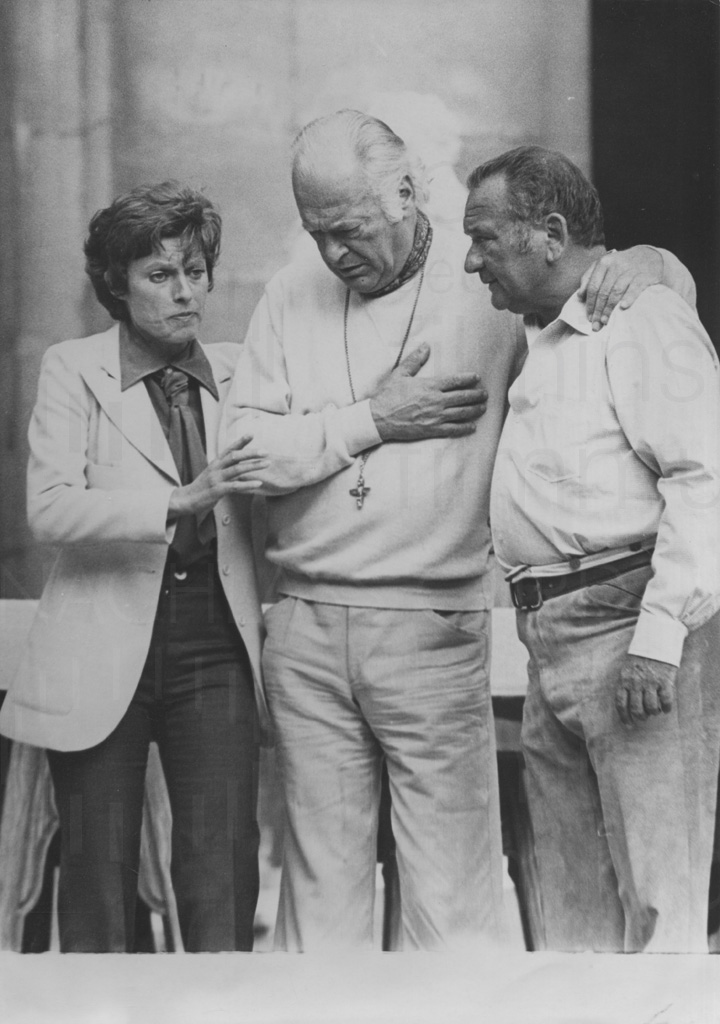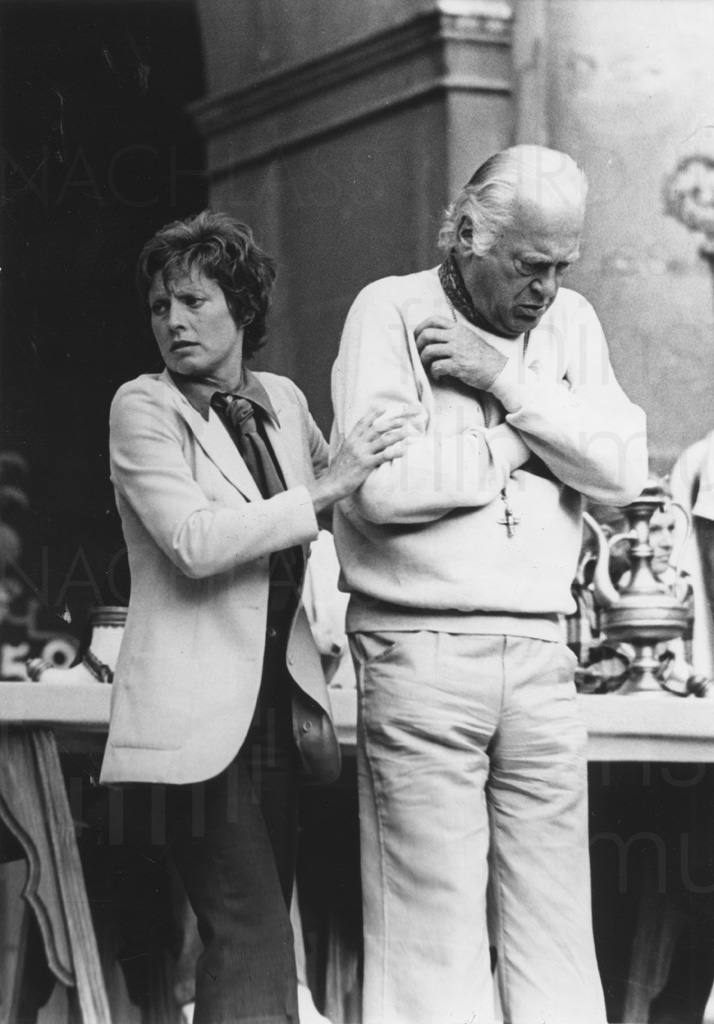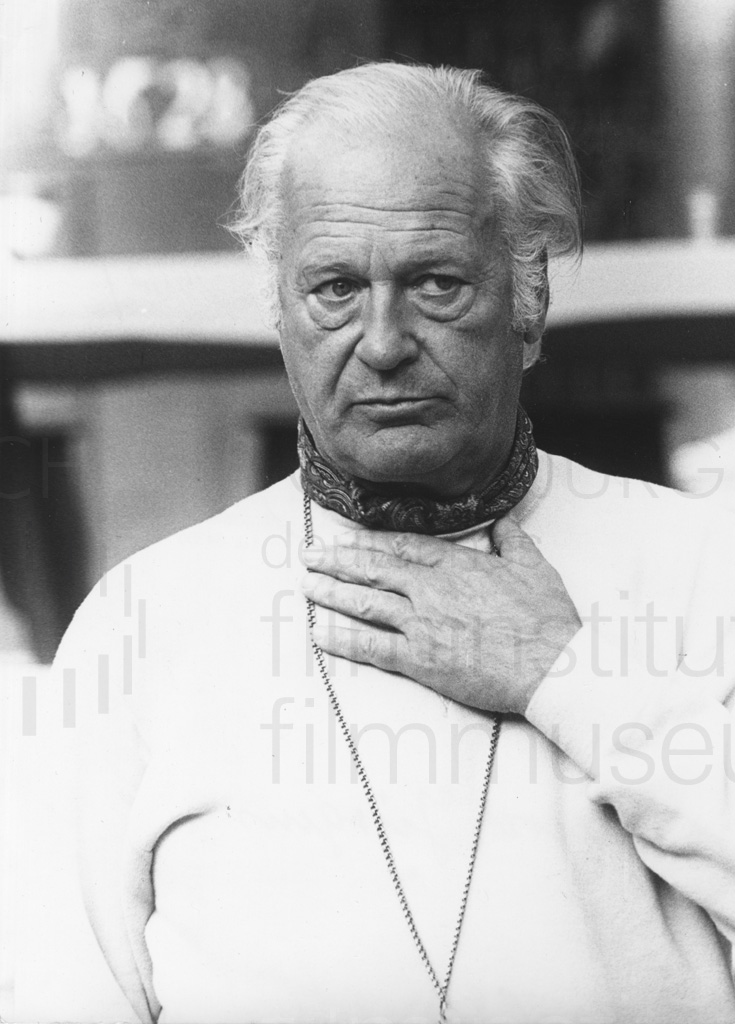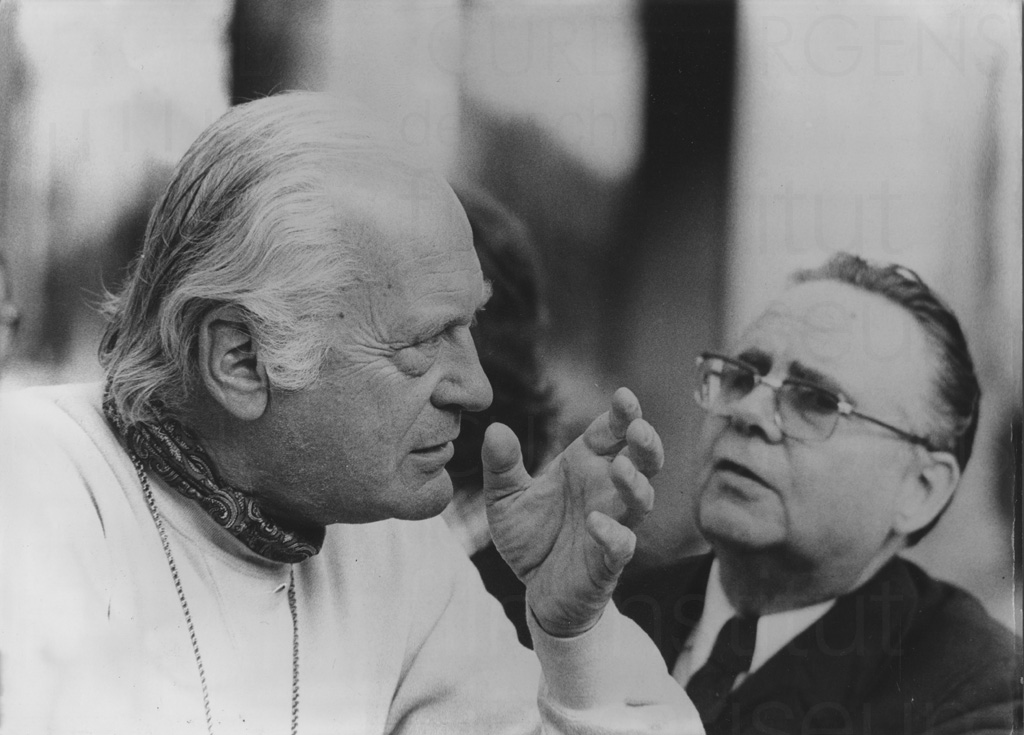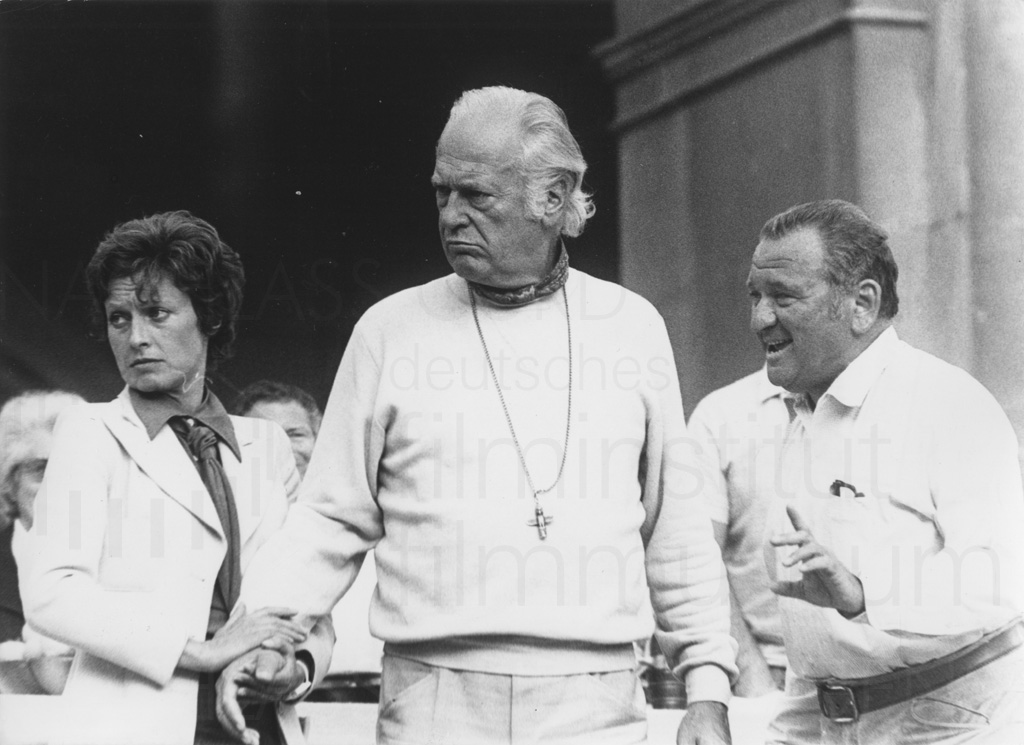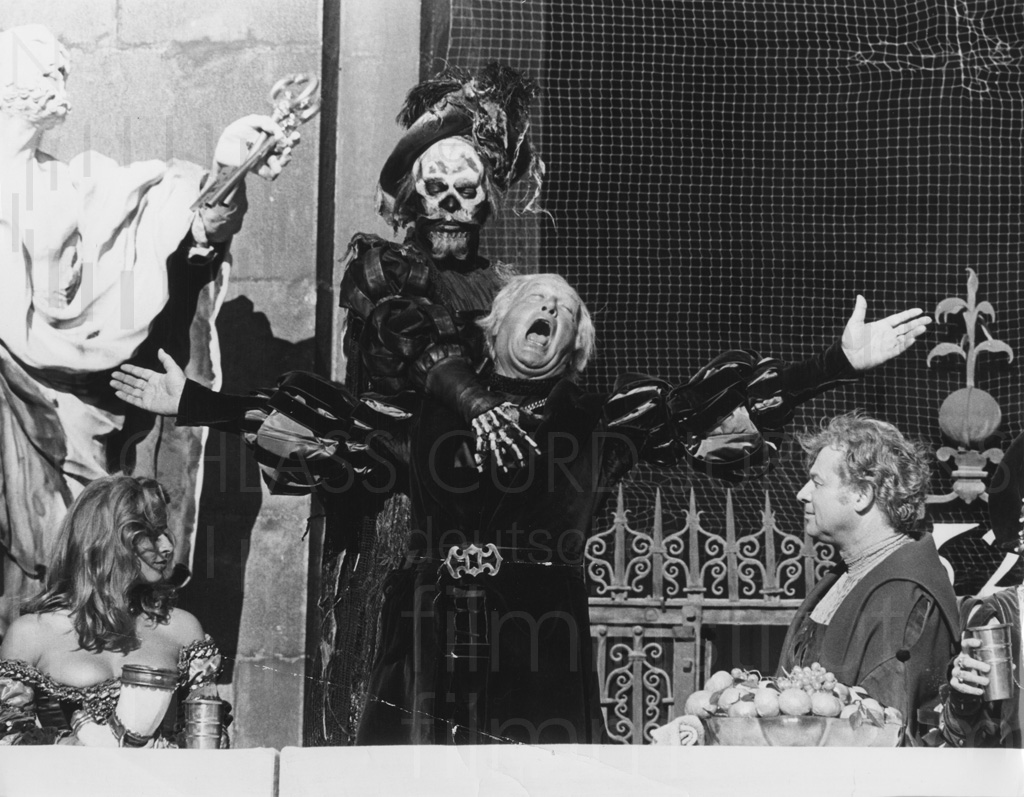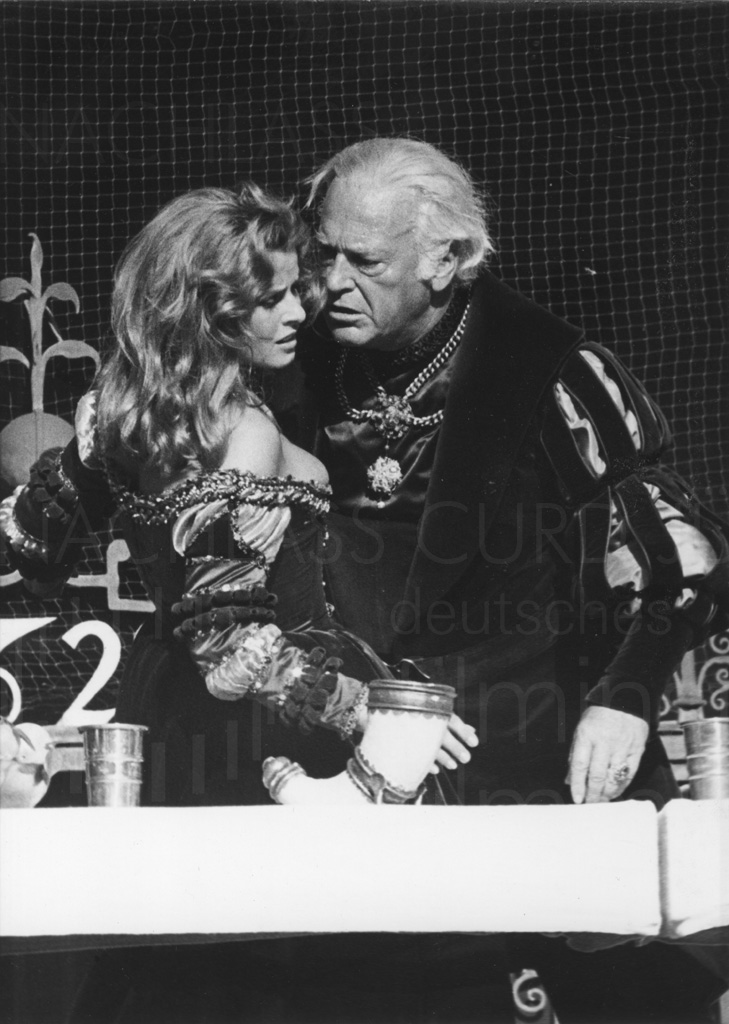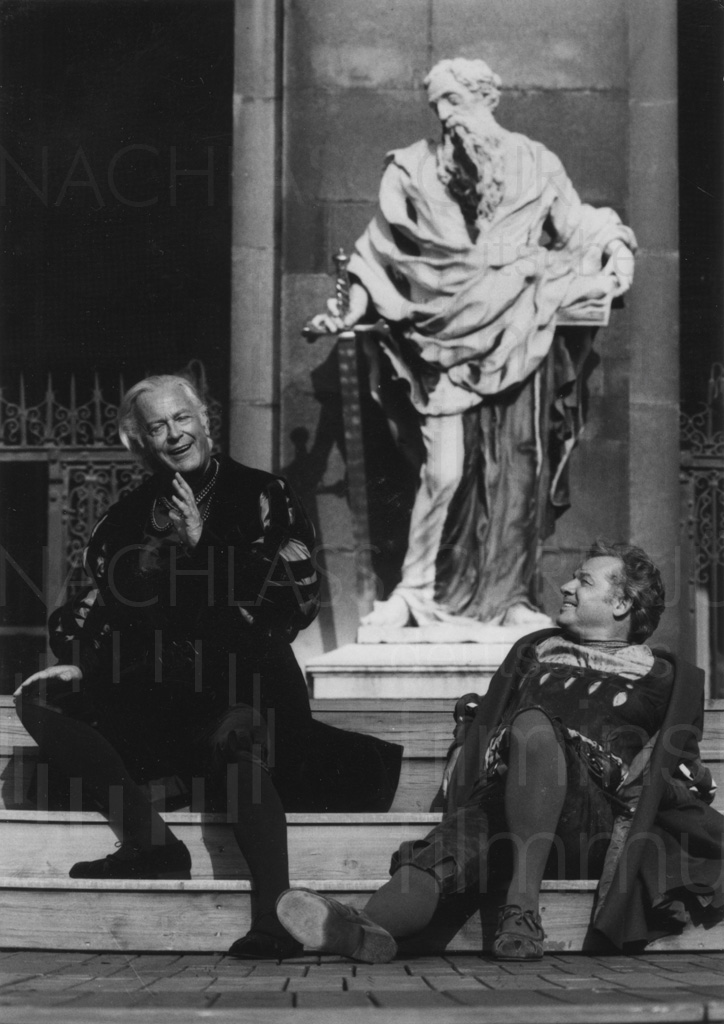“Richter in eigener Sache” (1966)
The degree to which the public – and the Viennese public with its theatre – and the actor-cult in particular, needs clear labelling, appears in the consistent but at the same time risible attempts to categorise Curd Jürgens’ artistic work. After applying himself exclusively to film and television for nine years, he returned to Vienna after the long absence from the Burgtheater to play the role of Bill Maitland in John Osborne’s “A Patriot for Me”, for which he was to receive the Kainz-Medal of the City of Vienna. The Österreichische Neue Tageszeitung wrote on the occasion of his home-coming: “They (the Viennese public) first met him as a glib man of the world, as an outdoorsman in the big city, as a vivid and articulate speaker of lines in classical theatre. In the meantime he has become – as splendidly proved with his performance as Harras in the film version of DES TEUFELS GENERAL – the mature type of character lover.”[i]


